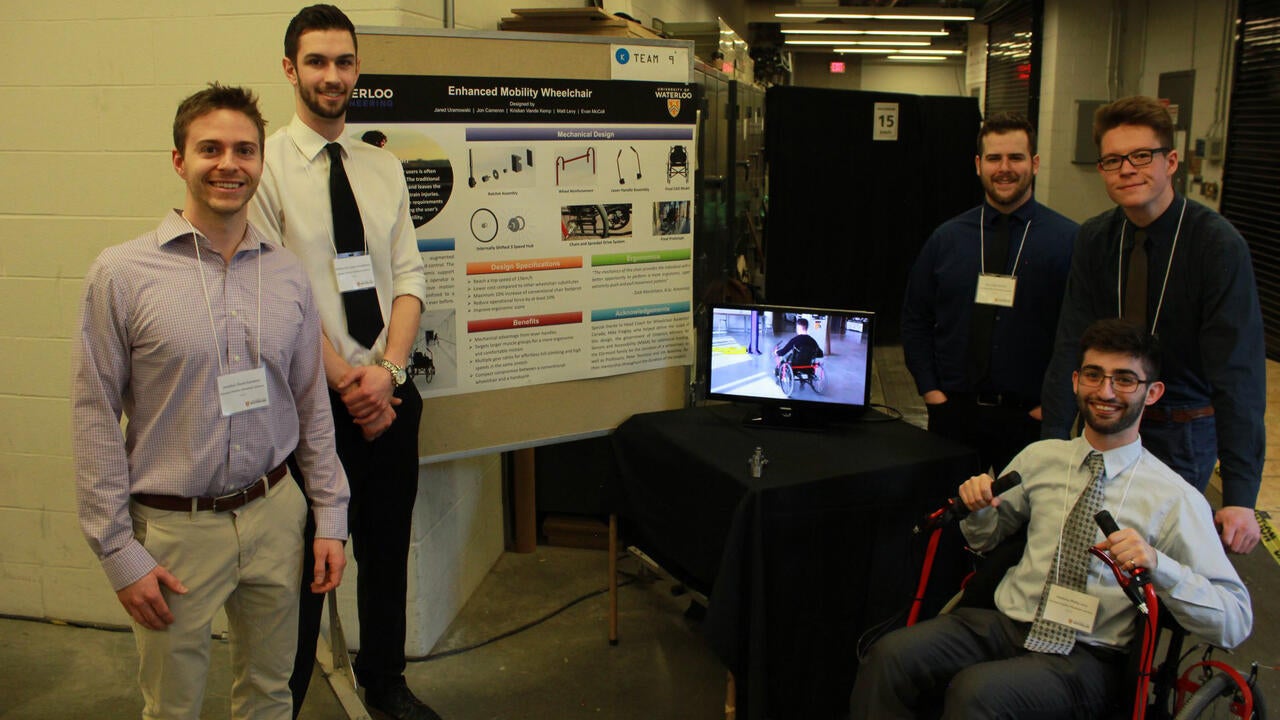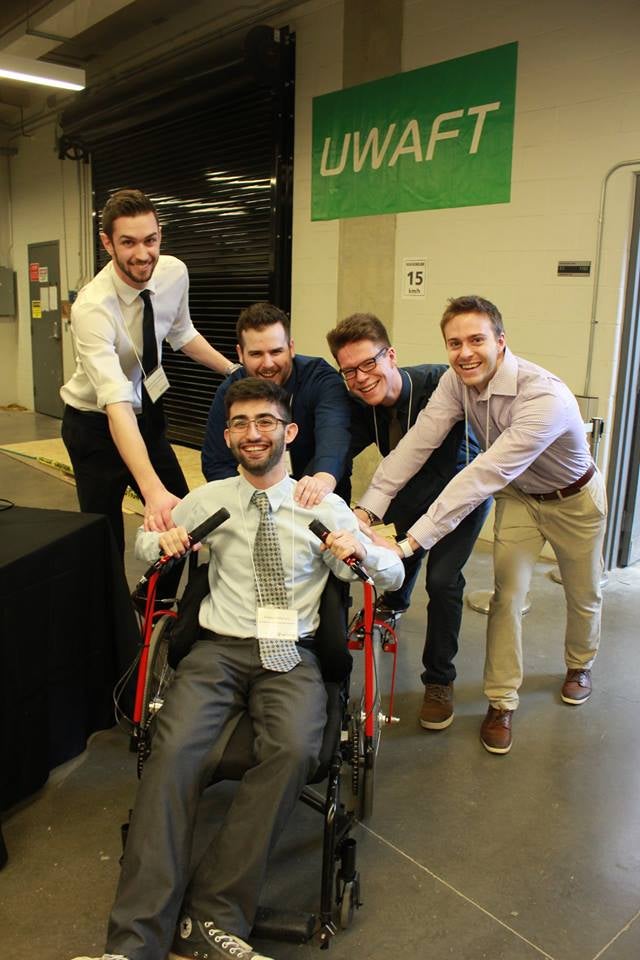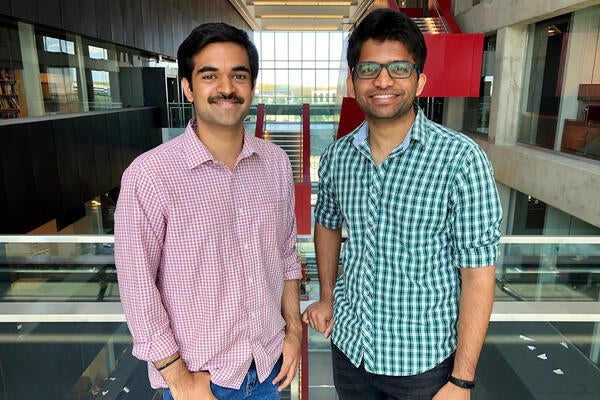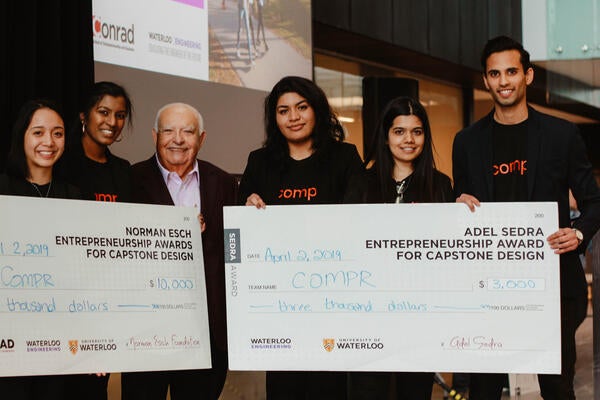
Enhanced Mobility Wheelchair wins first-place at the 2019 IDeA competition
Waterloo students’ capstone design project nationally recognized for overcoming accessibility barriers

Waterloo students’ capstone design project nationally recognized for overcoming accessibility barriers
By Stephanie Longeway University RelationsFive mechanical engineering students created the Enhanced Mobility Wheelchair for their 2019 capstone design project, and now their work is being nationally recognized for improving accessibility and inclusivity in Canada.
Wheelchair users often face challenges when deciding which device to use to get around. Regular wheelchairs are easy to manoeuvre, but hand-cycle wheelchairs offer better speed efficiency. The Enhanced Mobility Wheelchair team has designed and prototyped an augmented wheelchair that provides users with the comfort and maneuverability of a traditional wheelchair while offering the speed of a hand-cycle wheelchair. The novel drive system provides greater ergonomic support and promotes good posture even when the operator is tired. Selectable gear ratios greatly improve motion efficiency on a variety of terrain, helping those confined to a wheelchair go further and faster than ever before.
Innovative Designs for Accessibility (IDeA) is a national competition that challenges university students to develop innovative, practical and cost-effective solutions to address accessibility issues affecting people with disabilities. By collaborating with industry, government and community partners, students take an inclusive design approach to create initiatives that help overcome physical, technological, systemic and attitudinal barriers. Through IDeA, students gain valuable hands-on learning experience while contributing to the creation of an accessibility culture in Canada.
The Enhanced Mobility Wheelchair team will receive $5,000 and an all-expenses-paid trip to Ottawa to present their project at the FWD50 Conference on November 7. Bringing together industry, start-ups, government, community partners and innovative thinkers from around the world, FWD50 explores how we can embrace new technologies and innovations to foster a more inclusive and prosperous Canadian society.

The Enhanced Mobility Wheelchair team: Jon Cameron, Kristian Vande Kemp, Matt Levy, Jared Uramowski and Evan McColl
In total, nine student teams from across Canada were recognized for their work in breaking down accessibility barriers on their campuses and in their communities. Visit the IDeA competition website for a complete listing of the winning projects.
Administered by Universities Canada, IDeA is part of a larger effort to advance equity, diversity and inclusion on university campuses and across Canada. The competition is funded by the Government of Canada’s Social Development Partnership Program.

Read more
Engineering researchers build an AI system to find and save highlights in match videos

Read more
Graduate students Robie Hennigar and Samuel Jaques recognized for their outstanding academic record and research

Read more
Six teams of engineering graduates hope to turn their fourth-year design projects into viable businesses
The University of Waterloo acknowledges that much of our work takes place on the traditional territory of the Neutral, Anishinaabeg, and Haudenosaunee peoples. Our main campus is situated on the Haldimand Tract, the land granted to the Six Nations that includes six miles on each side of the Grand River. Our active work toward reconciliation takes place across our campuses through research, learning, teaching, and community building, and is co-ordinated within the Office of Indigenous Relations.